- Home
- Nancy Buckingham
A Cotswolds Legacy
A Cotswolds Legacy Read online
A COTSWOLDS LEGACY
Nancy Buckingham
Chapter One
To say I was shocked at the news of my father’s death would give entirely the wrong impression. I was stunned, confused, my bedrock beliefs shattered to fragments. I was left wondering what other facts of my life were only fiction.
I had always understood that my father died well over twenty years ago, soon after I was born.
It was only now that I realized how little I had ever known about him. The few bits and pieces I could fit together had come from my mother, Bella. He had been a doctor, I knew that for sure, and I had a strong impression he had spent a lot of time out in the Far East.
When I was a child Bella would talk sometimes about life in London during the war, the severe food rationing, the blackout, and the bombing. Of how everyone rushed down to the subway when the warning sirens sounded, and of the casualties they’d had to cope with at the hospital where she was a voluntary nurse. I had built up a romantic picture of the beautiful Bella—my mother was always lovely to look at—and the handsome young doctor at St. Mark’s, falling in love and marrying against the background of a war-stricken city.
As for my father’s dying, however hard I try now, I cannot remember that Bella ever told me of it in so many words. I had grown up with that idea, and she had certainly never disillusioned me.
It may look as if I was remarkably without curiosity about my father. I suppose in a way that’s true, but to the child of an American home, an English father I couldn’t remember was a very shadowy figure. I had all I needed in my delightful New Englander stepfather, Edwin Royle. He reared me with a judicious mixture of indulgence and discipline. I loved him as much as I loved Bella—perhaps even more. I was brought up to use his name, which is why I’m known as Dulcie Royle. The surname Drysdale was as unreal to me as the man who bore it.
I’d been established in London for all of six months, in a pocket-sized apartment which the real-estate man described as ‘compact’, when the news reached me which so shook the complacent background of my life. The mailman always came early, and hearing the thud I leapt out of bed and skated to the front door. A letter might bring good news, like a meaty part in a TV series.
I found a severe-looking foolscap envelope postmarked Cheltenham. The letter inside, to the point and coldly formal, invited me to communicate with Messrs. Struckett and Boyce, Solicitors. It referred in matter-of-fact terms to the death of my father, Dr. Eliot Drysdale, two weeks before, and stated that his property had been bequeathed to be in his Will.
What I needed most at that moment was someone to turn to—somebody who could explain this mystery. But who was there? Bella had been dead for more than two years, and Edwin had remarried. Although we remained on affectionate terms, I hadn’t seen a great deal of him in the last months before I left the States. His new wife Lois was several years younger than Edwin, and it was very understandable that she didn’t relish the idea of having me around, especially as I was only Edwin’s stepdaughter anyway. Rather than be an embarrassment to them I kept out of their way, and when the chance of a small movie part in London came along, I grabbed at it. I’d always had a sentimental notion that someday I’d like to return to my native land.
I was tempted to get in touch with Edwin now and ask him what he knew about my real father. But it wasn’t the sort of thing you could probe into on the transatlantic phone. And anyway something else held me back. What I had just learned might come as a painful shock to Edwin. I shrank from the possibilities this new knowledge opened up. I was forced to wonder just how much Bella herself had known.
Had she married Edwin believing herself a widow? I’d heard of such tragic situations occurring during the war. Could it be that she had remarried and discovered later that her legal husband was still alive?
Or had she from the beginning known that Eliot Drysdale was still living?
As I put through a call to the lawyers in Cheltenham I half expected to discover that the whole thing was a mistake, or even a horrible practical joke. But the woman I spoke to, who said she was Mr. Boyce’s secretary, was convincingly certain that I was the right person. I made an appointment to go there the following afternoon and hung up.
I had just finished a movie, playing the air hostess in a Boeing—cool and efficient in the face of disaster. Rehearsals for my next TV spot were still way off. I was free to go and investigate this mysterious summons.
In the six months I had been living over here I’d had mighty little opportunity to get to know the old country. Show business is pretty hectic. If you’re working there isn’t much time left for amusement. When you do get a few days off, and you’re not spending them worrying about where your next job’s coming from, your social life is liable to be pretty hectic too.
The train journey to Cheltenham gave me my first chance to take a leisurely look at the English countryside. Its lush green intimacy delighted me. As we dived into Cotswold country the landscape became grander—thickly wooded valleys cleaving softly billowing hills. And dotted everywhere among the trees and up the hillsides were charming dwellings built of tawny mellow stone.
I tried to sort out my feelings towards the unknown man who had been my father. He had made a Will in my favour, so he had obviously been aware of my existence. Yet in twenty-four years he had failed to make any attempt to get in touch with me, allowing me to grow up believing I had no real father. What kind of man was it who could deliberately cut himself off from his own flesh and blood?
At the same time I had to acknowledge that he couldn’t have been totally without feeling, or at least some idea of responsibility towards me. I was to inherit his possessions, whatever they might be. Not automatically because I was his next of kin, but by a deliberate act on his part.
From Cheltenham station I took a taxi to the offices of Struckett and Boyce. The rooms had an air of dignified decay about them. The furniture was solid and respectable, and I had no doubt that the firm was too. I was shown directly into the office of the head of the firm.
Mr. Boyce had a virtuous face—a quality invaluable to a lawyer—but it was utterly lacking in human warmth. His eyes were cold pale grey, and his nose thin and pointed. His lips too were very thin, so that his mouth was little more than a slit across his face. When he talked his upper lip was immobile like a puppet’s.
‘Good afternoon, Miss ... Royle,’ he said, unsmiling. He advanced with a total lack of eagerness to take my hand. It was like shaking hands with a codfish. He invited me to sit down.
Mr. Boyce took his own seat very properly and uprightly behind the large mahogany desk, and surveyed me steadily.
‘It was necessary for us to make an extensive search before we were able to discover your whereabouts,’ he began severely.
He seemed to be blaming me for the inconvenience, and I found myself murmuring an apology. But if anyone was at fault in this matter, I was certainly in the clear.
‘... otherwise, of course,’ he was saying, ‘we should have informed you of your father’s death immediately, in time for you to attend the funeral.’
‘Mr. Boyce, I guess I ought to tell you that before I had your letter yesterday I knew nothing of my father. I’d got the idea he had died way back—soon after I was born, in fact. You see, I was raised in the States.’
The lawyer didn’t seem surprised, as far as I could judge from his impassive face. ‘No doubt that explains our extremely vague instructions.’ He frowned. ‘I don’t like such a lack of clarity. It invariably leads to misunderstandings. But presumably, in view of what you say, Dr. Drysdale was unable to be more specific. He merely informed us that you were an...’ Without really pausing he managed to convey his distaste. ‘... an actress.’
> That last word jolted me. So my father had known something about me. I began to wonder if he had been in some sort of touch with my mother all along. The thought gave me an eerie feeling.
During the train journey here I had managed to dream up a cosy picture. I had imagined my father as a much-loved local doc, democratically ministering to his grateful patients in peasant cottage and Manor House alike.
Mr. Boyce demolished this comfortable vision. ‘Your father had not practised medicine for many years. He was head of Drysdale Pharmaceuticals—a small firm engaged in the manufacture of medicinal drugs.’
‘I see.’ Somehow I was disappointed.
‘You inherit the majority holding in the firm, together with his house. The two are adjoining.’
‘Adjoining? He lived right by the factory, then?’
Mr. Boyce explained that part of the house had been converted into a laboratory. ‘As far as I can see the firm has never been particularly successful, but its balance sheet is adequate. There are no outstanding debts. It will be for you to decide whether you wish to retain the business interest, or to dispose of it. Though I am afraid it may not be easy to find a buyer, especially as there is the complication of the house.’
‘I don’t get it. Why should that be a complication?’
His words, not his face, betrayed a slight impatience. ‘As I told you, the house and laboratory are actually adjoining. I don’t imagine many prospective purchasers of a country house would choose to be only semi-detached from a chemical works. On the other hand, re-conversion back to a residence would be expensive.’
He was right, it did all seem very complicated. My personal feelings for my father began for the moment to be overshadowed by the immediate problems his bequest had landed in my lap. But I realized that Mr. Boyce was not at all the sort of man to discuss alternatives with—he dealt only in facts.
He continued in his stilted way, ‘I take it that you will be able to delay your departure until you have had an opportunity to see your inheritance, and to instruct me as to the future?’
I told him I had come prepared to stay the night. I ventured to ask him to recommend a hotel.
‘You could, of course, stay at an hotel, if you prefer. But your father’s housekeeper, Mrs. ... er ... Cass, has prepared for you to stay at Malverton.’
The housekeeper was the only other major beneficiary mentioned in the Will—she had been left enough to provide her with an annuity. I felt a little diffident about staying the night at ... what was the name of the house? Malverton. But if this Mrs. Cass was expecting me, it might cause offence if I didn’t. In any case, I had better see the house as soon as possible, so I could decide what to do about it.
Mr. Boyce seemed incurious about my plans. ‘Your father’s partner, Mr. Tyler, has arranged to call this afternoon, to take you to Malverton,’ he said. ‘My secretary will have telephoned him to say you are here. No doubt he will be arriving quite soon.’
‘Mr. Boyce, what caused my father’s death? Had he been ill for a long time?’
‘Dr. Drysdale suffered from diabetes. The disease was of long standing, but there was no reason to suppose he would not live a normal span.’
‘Then why...?’
“He died of a heart attack, precipitated by insulin shock.’
He saw my bewildered expression, and condescended so far as to explain.
‘It has something to do with a lack of balance between insulin injections and intake of food. It was his habit to take a Sunday morning walk, and his body was found later in the day, in an isolated part of the hills. Apparently he was taken ill suddenly, and was unable to reach help.’
I felt the colour drain from my face. ‘But how dreadful! Surely I’ve read somewhere that diabetics usually carry some sugar or sweets to eat in an emergency... ?’
‘That is true. It seems your father had forgotten to take his supply of sugar with him that day.’
‘Fancy his life depending on a lump of sugar! Doesn’t it somehow seem more terrible that such a thing could happen to a doctor, of all people?’
The lawyer’s face expressed entire lack of interest in such sensibility. His fingers, toying with the papers on his desk, closed the cover of my file. The action admirably summed up his opinion that he was done with me for the moment.
We were both saved from further embarrassment by the arrival of Mr. Tyler.
To my surprise, the man who was shown into the office was in his mid-thirties. I had assumed he would be elderly, more of my father’s own generation.
His warmth restored the temperature. He gave my hand a sound pumping. ‘Glad to see you,’ he said with a big welcoming grin.
He was tall, towering high above my five foot five. He was powerfully built too, and I could imagine him to be an athlete or footballer. His face was very much alive, given to quick and extreme changes of expression. Light brown hair grew in a widow’s peak on his forehead, and he wore it brushed back into crisp waves.
‘Well now,’ he said briskly, ‘if you’ve finished with the legal rigmarole, let’s be off, shall we?’ And putting a hand under my elbow, and with barely a nod at Mr. Boyce, he steered me towards the door.
A Jaguar was parked around the corner from the lawyer’s office. In a few minutes we had slid through the inner congestion of the town, through the terraces of faded Regency houses on the outskirts, and were swiftly climbing into the hills.
All around us was the scenery I had noticed from the train—thick patches of woodland and rolling hills golden with buttercups and dandelions. Then a sudden dip in the road would take us into an intimate scene, stone cottages with their colourful little gardens, sleeping dogs, women gossiping in the sun. A couple of times it became almost dark as we plunged into a tunnel of overhanging boughs. And everywhere the everlasting stone walls of this Cotswold country, marching unchecked across the hills and down into the valleys.
Almost as soon as we started off Max Tyler had asked me, ‘How did you get on with old Boyce?’
‘He was a bit daunting,’ I admitted cautiously. ‘I’m still trying to digest what he told me.’
He snorted with laughter. ‘He’s a stodgy old boy. I expect it’s all been a bit of a surprise, hasn’t it? I gather this little lot was all news to you?’
‘It sure was. I didn’t know a thing about my father or anything else. I know it must sound incredible, Mr. Tyler....’
‘Call me Max,’ he cut in. ‘You and I need to be friendly right from the start, Dulcie.’
‘Max, then will you put me wise about my father, please? What sort of a man was he?’
Max Tyler took one hand from the wheel and stroked his chin. ‘Let’s see now, I suppose you’d call him a retiring man—a bit of a recluse in a way. He led a very quiet existence. He had his books, of course, but apart from them his work was his whole life. In fact...’ Max nodded to himself in approval of the picture he was presenting, ‘... you could really visualize him best as the absent-minded professor.’
‘Absent-minded ?’
‘Now don’t misunderstand me, Dulcie, he was a very clever man and had a marvellous brain. But he’d get completely absorbed in what he was doing, and forget about everything else. I’m afraid it was his forgetfulness that cost him his life.’
‘Mr. Boyce told me about that. I must say it seems extraordinary to me that a doctor could allow such a thing to happen to himself. He must have realized the danger, surely?’
We had to swerve to avoid a slow farm truck.
‘You’d think so, wouldn’t you?’ said Max. ‘But he was like that, you know—always forgetting things. He lived in a sort of dream world of his own. The doc took absolutely no interest whatever in the practical running of the business. That’s where I came in.’
‘Yes, I can see he would need someone. I must admit I was surprised when I first saw you. I guess I was expecting you to be much older.’
He grinned complacently. ‘Well then, wasn’t it a pleasant surprise? I’m following in
father’s footsteps, actually. Dear old Dad was the original partner, and the job passed on to me when he died.’
‘Tell me more about the firm, please. All Mr. Boyce said was that you manufacture medical drugs here’
‘Just the one. It’s a very specialized antibiotic for treating a disease they get out in the East. Paratetroid fever, it’s called.’
‘I don’t think I’ve ever heard of it.’
‘Probably not. Compared with malaria and yellow fever and things like that, I suppose it could be counted as a rare disease. But all the same it’s a devilish thing to get—it leaves you paralysed if it doesn’t kill you first. And of course, with all the teeming millions in those countries, there are always a good many cases. Enough to keep us busy, anyway.’
“One of the few things I knew about my father was that he’d spent a number of years out East.’
‘That’s right, Dulcie. Before my time, of course. Apparently he’d been working in an area where this Paratetroid trouble was pretty bad. He was always sure there must be a simple answer to it, because the natives had a kill-or-cure remedy of their own. They boiled up a local weed and then drank the stinking muck. But the results were shockingly erratic. The doc spent years on research until he found the answer.’
‘What was that?’
‘He worked out a way of stabilizing the essential ingredient. It’s got some horribly long name, but we always call it MJ71. The process still isn’t perfect, but we get good enough results to justify making the stuff commercially.’
For a few moments I thought over what Max had told me. ‘It seems a bit irrational to me to make the drug in this country. I mean, wouldn’t it be more sensible to go where the raw material is and process it on the spot?’
‘You’re right, of course. But it wasn’t possible to do that. After the war your father’s health was never good enough to stand up to the climate out East again. He did all his research in this country, and then when he was ready to go ahead, none of the big drug houses would listen to him. You see, the process called for a big outlay in equipment, and the returns were none too certain at that time. In the end the doc decided there was nothing for it but to set up his own plant at Malverton, and my papa joined him to run the business side for him.’

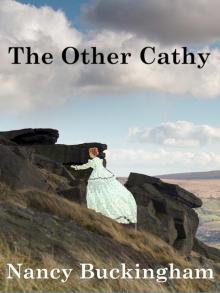 The Other Cathy
The Other Cathy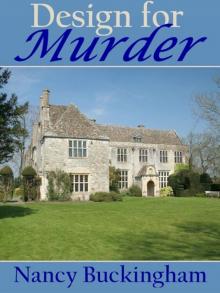 Design for Murder
Design for Murder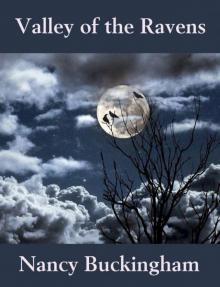 Valley of the Ravens
Valley of the Ravens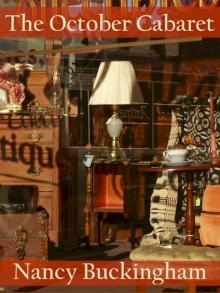 The October Cabaret
The October Cabaret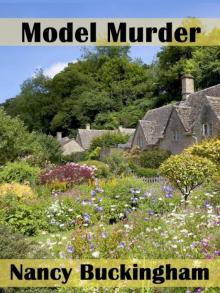 Model Murder
Model Murder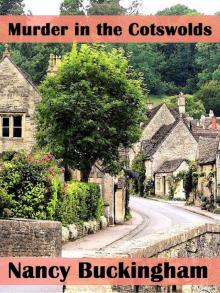 Murder in the Cotswolds
Murder in the Cotswolds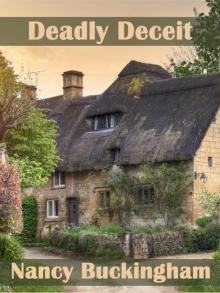 Deadly Deceit
Deadly Deceit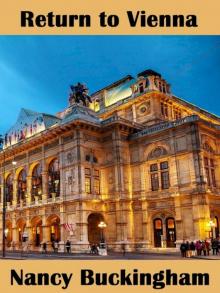 Return to Vienna
Return to Vienna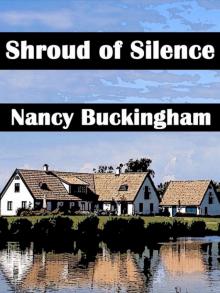 Shroud of Silence
Shroud of Silence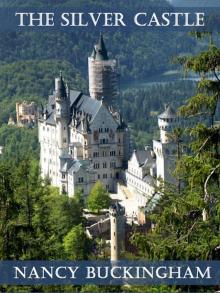 The Silver Castle
The Silver Castle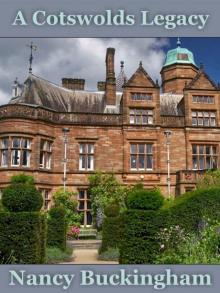 A Cotswolds Legacy
A Cotswolds Legacy Marianna
Marianna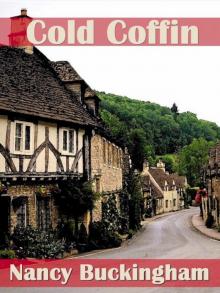 Cold Coffin
Cold Coffin Kiss of Hot Sun
Kiss of Hot Sun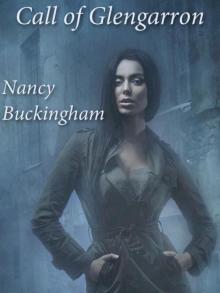 Call of Glengarron
Call of Glengarron Quest for Alexis
Quest for Alexis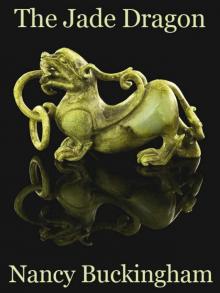 The Jade Dragon
The Jade Dragon